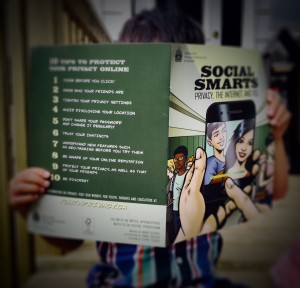Cybersecurity Awareness Month 2014
October 1st marked the start of Cybersecurity Awareness Month. It’s an opportunity to share tips and tools to help people stay more safe and secure online.
Read moreOctober 1st marked the start of Cybersecurity Awareness Month. It’s an opportunity to share tips and tools to help people stay more safe and secure online.
Read more
Looking for ways to kick the school year off right?
Read moreThis week is Privacy Awareness Week (PAW) – a global effort, coordinated by members of the Asia Pacific Privacy Authorities (APPA), to raise awareness about the value of privacy and the importance of protecting it.
Read moreCanadian kids are communicating online more than ever before, and are using tools like Skype sometimes even before they learn to walk. Many of us are astonished at how easily they adapt to new devices that connect to the Internet and at how these devices can quickly become part of their lives, as they use them to chat, surf, post, play and learn.
Read moreWe’re launching our fourth annual My Privacy & Me Video Contest, where students aged 12 to 18 show us what they have to say about privacy.
Read moreThe Office of the Privacy Commissioner of Canada is launching a new youth privacy tool that will help teachers and community leaders talk with younger Canadians about their privacy online.
Read moreThe Media Awareness Network, benefactor of the Office of the Privacy Commissioner’s Contributions Program, has launched the third Phase (Phase III) of its ongoing study, Young Canadians in a Wired World (YCWW). This third phase is a crucial element to the project, as it will shed a more distinct light on the need for online education resources in classrooms and communities.
Read moreWe have been following recent cases where online social networks have been accused of leaking personal information to third parties. The leakage is caused by the networks’ use of referrer headers (information about where on the web a user is coming from) that can include the username, allowing automatic linking to profile information if it is available.
Read moreWhile there are always advance warnings about the potential privacy risks of emerging technologies, it usually takes a “killer app” for people to take notice of the real dangers. For geotagging, that app is the rather aptly named creepy.
Read moreWe’re launching our 2010 My Privacy & Me Video Contest for 12-18-year-olds – and the first-place winners will win an iPad!
Read moreShowing items 11 through 20 of 60.